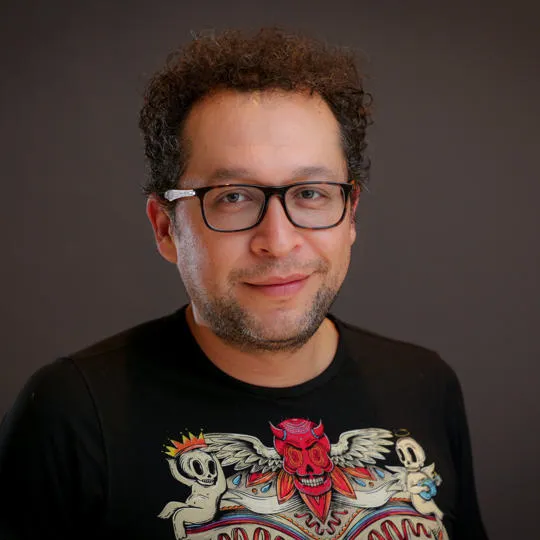Increasingly, I've started to wonder if a kind of rhetoric of meritocracy and deservingness is what's underpinning our kind of ability to tolerate ongoing suffering and ongoing deprivation in a world of abundance, where, you know, I think, really this, there's no reason for it to be happening.
Dr Liz Fouksman
08 February 2022
Why does global poverty exist and could we share wealth more evenly?
New podcast episode looks at levels and causes of global poverty and whether universal basic income schemes offer a way to address it.

The latest episode of the ‘WORLD: we got this’ podcast explores how poverty affects people around the world and hears what could be done to distribute wealth more evenly.
In the episode, Dr Eduardo Ortiz-Juarez, Dr Liz Fouksman and Otto Lehto, who are all part of the Faculty of Social Science and Public Policy, share research on what lies behind global poverty including the effects of the pandemic and where it is increasing the fastest.
They also look at the suggestion that every adult should get a guaranteed minimum income, and we hear how fixed and deep-rooted ideas around work could be affecting grassroots support for such schemes and be contributing to poverty around the world.
Dr Liz Fouksman, of the School of Education, Communication & Society, has sought to understand the persistence of poverty and inequalities around the distribution of wealth across the through her research.
Her work focuses on the long-term unemployed in South Africa and Namibia. It has shown how history, colonialism and contemporary capitalism have created attitudes to work and wealth that are rooted in ideas of effort and deservingness, even if in many cases people are unable to get themselves out of poverty through effort alone.
The episode also hears how the arrival of COVID-19 has had a significant effect on poverty levels. Based on the measure of a person on living on $1.90 a day, the World Bank has estimated there will be another 110 million people living in extreme poverty due to the pandemic.
However, research by Dr Eduardo Ortiz-Juarez, of the Department of International Development, and colleagues at King's suggests it could be much higher - with as many as 300 million more people in extreme poverty, when you take into account that the economic hit could be harder among some groups given the pre-existing inequalities, and the insecure economic position of those who had only recently got themselves out of poverty.
In the episode he says he wants the world to focus not only on the $1.90 threshold. For every 10 cent adjustment above this, another 70 million people could be classed as being in extreme poverty. Also $1.90 is an average figure but for some few countries, a higher threshold is more appropriate because of the standard of living, such as $3.20 for lower middle income countries or $5 50 for upper middle income countries. This would have an effect on our understanding of patterns of poverty around the world, with the largest increases seen in East Asia and the Pacific and in Southeast Asia.
It is not enough to track poverty at $1.90 per day because that could be misleading and that could be a good incentive for many governments to say 'Hey, poverty has been declining according to the standard there is, there is no need to do more'.
Dr Eduardo Ortiz-Juarez
He wants to see the academic and policy-making communities, and international organisations, apply pressure to get this more complex assessment accepted.
One of the ideas that has been suggested to help reduce or alleviate poverty is Universal Basic Income or UBI.
In the episode Otto Lehto, a PhD candidate in our School of Politics and Economics, explains it would mean every permanent resident in a country getting unconditional access to a certain basic level of money, not just sections of society as happens with most welfare systems currently, and once that money is in the hands of people, they can do with what they wish.
Despite the fears of some, he said there is no evidence it leads to a drop in levels of work overall but it does give people greater freedoms and control over their lives.
I think it's clear that people are clamouring for solutions and reforms, and I think, basic income is still the most promising of the ones that have been proposed … I think it's definitely something that probably many countries will have to look at … in order to be able to also satisfy the desires of people for a bit more stability, a bit more fairness, a bit more autonomy in the welfare state system for people.
Otto Lehto
How to listen
You can find the full episode and previous seasons’ episodes on Acast or through your preferred podcast provider by searching for ‘WORLD: we got this’.
This season of the WORLD: we got this podcast is a partnership between the Faculty of Social Science & Public Policy and the School of Global Affairs and will feature both themed and ‘In Conversation’ episodes.


